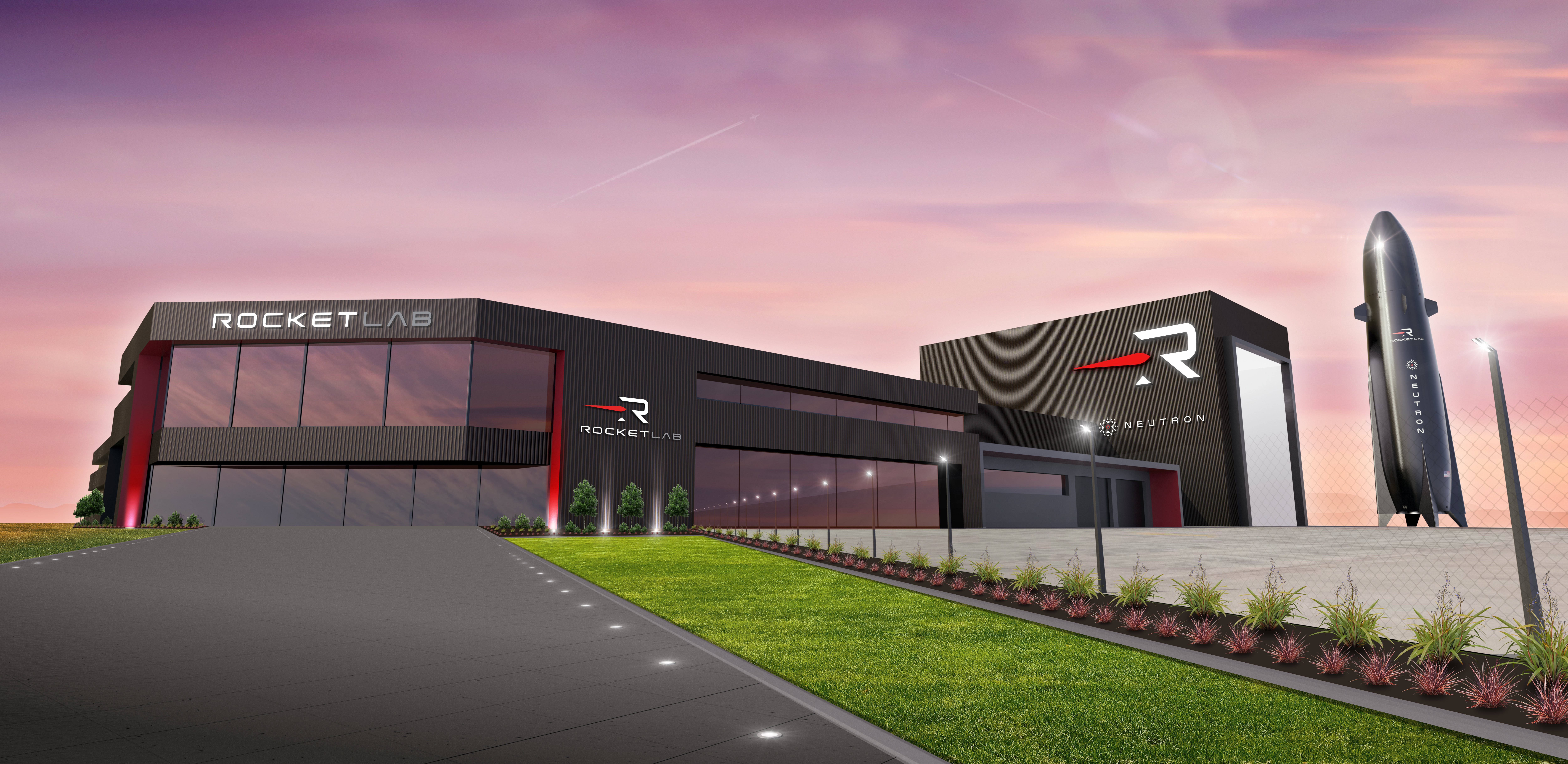Rocket Lab USA, a launch and space systems company, has selected Wallops Island, Virginia, as the location for its first launch site and extensive manufacturing and operations facilities, for its eight-ton payload class reusable Neutron rocket.
The Neutron Production Complex and launch pad for its Neutron rocket will be located adjacent to and within the NASA Wallops Flight Facility and Mid-Atlantic Regional Spaceport on Virginia’s Eastern Shore. The complex will be home to a rocket production, assembly, and integration facility, as well as a dedicated launch pad for the Neutron rocket located on the southern end of Wallops Island. The estimated 250,000 square foot state-of-the-art complex will be constructed on a 28-acre site adjacent to the Wallops Island Flight Facility and will include a Launch Control Center, Rocket Lab’s fifth global operations center for launch activities and on-orbit operations. To support rapid production of the Neutron rocket, current plans for the complex include automated fiber placement robotic production systems capable of laying up meters of Neutron’s new, specially formulated carbon composite structures in minutes. As a reusable rocket, Neutron is designed to land back on the launch pad after a mission and from there it would be returned to the production complex for refurbishment and re-flight.
The manufacturing complex will be located within proximity of Rocket Lab Launch Complex 2, the Company’s launch site for the Electron launch vehicle, the second most frequently launched U.S. rocket annually since 2019. Rocket Lab’s Neutron Production Complex is expected to create as many as 250 jobs in Virginia.
“Neutron is a new generation of rocket that will advance the way space is accessed, and Virginia makes perfect sense as a significant site for Neutron’s early development,” said Rocket Lab founder and CEO, Peter Beck. “Its position on the eastern seaboard is the ideal location to support both Neutron’s expected frequent launch cadence and the rocket’s return-to-Earth capability of landing back at its launch site after lift-off; and as one of only four states in the United States with an FAA spaceport license for missions to Earth orbit or on interplanetary trajectories, Virginia is home to an active and experienced aerospace workforce we can pull from to support Neutron’s development and launch. I’m thankful for the Commonwealth’s enthusiasm and backing of Neutron which, combined with the state’s rich heritage as an aerospace state, made it difficult to see anywhere else but Virginia to begin Neutron’s journey.”
Neutron is Rocket Lab’s next generation launch vehicle in development, designed to lift eight-tons of payload and to provide a tailored launch solution for satellite mega-constellations. Neutron’s unique design, materials, propulsion, and reusability architecture also make the launch vehicle ideal for assured access to space for the nation’s most critical missions, deep space exploration, and potentially human spaceflight. Neutron will be the world’s first carbon composite large launch vehicle, powered by in-house designed and manufactured Archimedes reusable rocket engines and an advanced upper stage to enable high performance for complex satellite deployments.
Rocket Lab selected Virginia as the location of its Neutron expansion on the strength of the extensive support from the Commonwealth of Virginia, in particular the Virginia Economic Development Partnership working alongside Accomack County, the Virginia Commercial Space Flight Authority (Virginia Space), and the General Assembly’s Major Employment and Investment (MEI) Project Approval Commission. As part of the Commonwealth’s proposal, $30 million has been set aside for infrastructure and operational systems improvements to the Mid-Atlantic Regional Spaceport where the Neutron launch site will be located, along with $15 million from the MEI Project Approval Commission in site improvements and building construction in support of Neutron.
Rocket Lab expects to begin construction on the Neutron Production Complex in Virginia promptly. Commercial and government interest in Neutron is strong and includes a recent $24 million development contract granted by the U.S. Space Force’s Space Systems Command (SSC) in support of Neutron’s capability to aid national security and defense missions ranging from scientific and experimental satellites to the largest and most critical national security payloads. Further Neutron expansion will continue throughout the United States as the program develops toward first launch.
